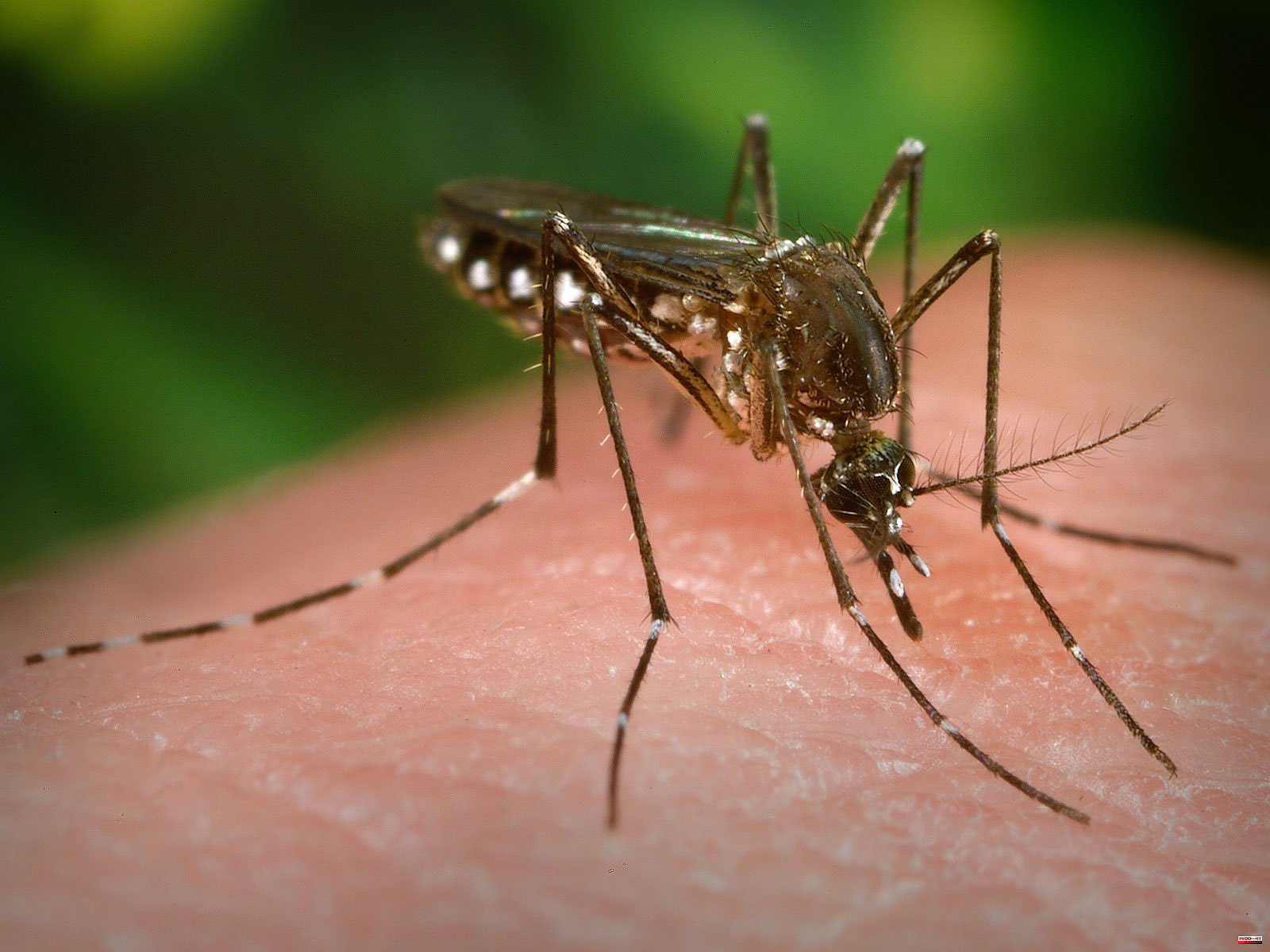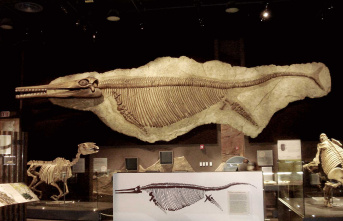Every year, hundreds of thousands die from diseases transmitted by mosquitoes. It is the most well-known disease, with malaria causing over 600,000. Around 4 billion people live in areas at high risk for dengue fever, which causes approximately 40,000 deaths each year. Zika virus has been found in individuals in at least 86 countries. Although rare cases are fatal, they can cause serious birth defects. Scientists are currently investigating whether viruses can alter human physiology to their advantage, and if so how.
Gong Cheng, a microbiologist from the Tsinghua University/Peking University Joint Centre for Life Sciences, was inspired to investigate whether mosquitos are attracted to humans infected by Zika virus and dengue fever. The new Cell study, published today in Cell, shows that mosquitoes are attracted to host who have been infected by both flaviviruses. These diseases belong to the same family as yellow fever and West Nile. The insects' increased attraction to hosts infected with both flaviviruses and yellow fever is explained by a chemical found in bacteria. Cheng wrote in an email that the findings of his team could help to "inform real world public health strategies for controlling mosquito borne flaviviral viral infections such as Zika and dengue."
Cheng's multi-step study began with Cheng's team testing whether mosquitoes of two species, Aedes aloftus and Aedes aegypti, were attracted to infected or Zika-infected mice. The mosquitoes were placed in a box with tubes connected to two boxes on either side. These side chambers were filled with air from nearby mice containers, which were either infected or uninfected by Zika or dengue.
Scientists released 60 mosquitoes in the central chamber, and monitored their movements over the course of one week. Initial results showed that the mosquitoes were similar in their entry into each of the boxes. The scientists noticed a pattern by day four: 70% of the mosquitoes went to the box that was connected to infected mice and 30% to the box that was not. After adding a deodorizer to the boxes to stop the smelly chemicals entering, the mosquitoes showed no preference. Scientists concluded that virus infection alters the odor of a mouse, making it more attractive for mosquitoes.
Cheng's group recruited both dengue-infected and uninfected people to see if they were more attracted to mosquitoes after being infected. To collect body odor chemicals, Cheng's team swabbed participants' armpits and had them hold untreated and odor compounds on one hand. Similar to before, the mosquitoes were allowed choice between the two papers using similar methods. The mosquitoes attracted the most to the odors of humans infected by dengue, just like the mice.
Scientists isolated chemical compounds that were released by infected and healthy mice to determine the effects of flavivirus infection. There were twenty chemical compounds that differed between infected and uninfected mice. Researchers then examined whether any of the compounds could cause a nerve impulse to the brains of mosquitoes. This indicated that the chemicals can be sensed by mosquitoes.
Acetophenone was the most likely suspect because it produced the strongest electrical response to the mosquito antenna test. Infected mice with Zika virus or dengue were more likely to emit acetophenone into the air than uninfected ones. Acetophenone levels in dengue patients were also higher than those who weren't.
When applied to the skin of a mouse, acetophenone was the only chemical that mosquitoes were attracted to. The mosquitoes were attracted to the chemical-laden hand of acetophenone when it was applied to only one hand.
Although previous studies have shown increased mosquito attraction in people infected by mosquito-borne diseases, this is the first study to identify the chemical responsible. "That they found this Acetophenone, that they found this effect in mice, in humans, is really the highlight of this study," Niels Verhulst (a vector entomologist from the University of Zurich's Institute of Parasitology), who wasn't involved in the study.
Researchers were still puzzled as to why acetophenone levels increased following viral infection. Acetophenone, a common bacterial product, was thought to be made by bacteria living on the skin. They killed some bacteria on mice and discovered that mosquitoes flew towards infected mice as much as the infected. Mice without skin bacteria made very little acetophenone.
They did more research. The scientists discovered that infected mice were more likely to have Bacillus bacteria than non-infected ones. Bacillus bacteria can be added to the skin of a mouse to make it more attractive to mosquitoes. Bacillus bacteria produced the most acetophenone among all skin bacteria tested.
The study's results suggest that Zika or dengue infection can cause an increase in Bacillus bacteria, which leads to greater acetophenone emission and increased mosquito attraction. Julien Martinez, an evolutionary biologist from the MRC-University of Glasgow Centre for Virus Research, said that each step of the pathway is not well understood. We know parasites can manipulate host cells to increase their transmission. We have many examples in the animal kingdom of parasites manipulating host to increase their transmission. But most of the times, we don't know the mechanism."
Although this is a significant breakthrough, Verhulst believes it isn't the only one. He believes that other bacteria might be responsible for mosquito attraction based on past research. He says that there have been at least four to five studies showing that Staphylococcus is a skin bacteria that attracts mosquitoes. Cheng also notes that other compounds may be responsible for the increased mosquito attraction of infected hosts.
Cheng's research group is currently looking at ways to use their research findings in order to decrease the spread of dengue viruses and other related viruses. They are currently looking at drugs that lower the acetophenone levels to treat dengue patients. Isotretinoin, a common acne medication, is effective in killing Bacillus bacteria. When infected mice were given isotretinoin, their Bacillus load decreased and their mosquito-attractiveness dropped. Considering that most of the research was conducted on mice, it is important to conduct more human studies. Cheng also noted that isotretinoin can have potentially serious neurological side effects, so his team is looking into safer alternatives.
These findings may also be used to design more effective mosquito traps or faster tests for Zika infection. A person's skin acetophenone levels can be used to diagnose infection. Verhulst states that this can be done quickly and much faster than taking blood samples and performing a test.
The research team also plans to examine the mosquitoes. Cheng now hopes to identify the genes that allow mosquitoes to sense Acetophenone. They may be able to turn these genes off so that the virus is less likely to be spread to humans.
Martinez points out, however, that it could be difficult to predict how mosquitoes will behave if the virus is affecting them. Martinez says that if you want to understand the epidemiology and spread of the virus, it is important to examine all stages of its life cycle. It's both in the mosquito and in the human.












